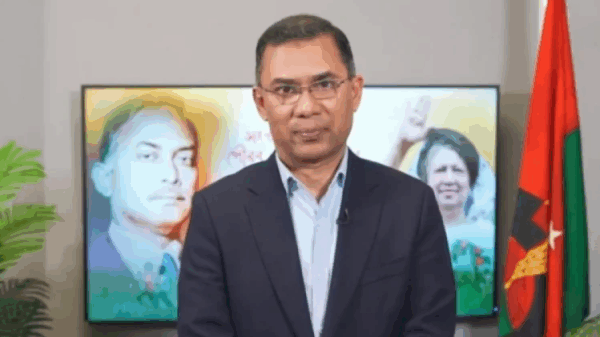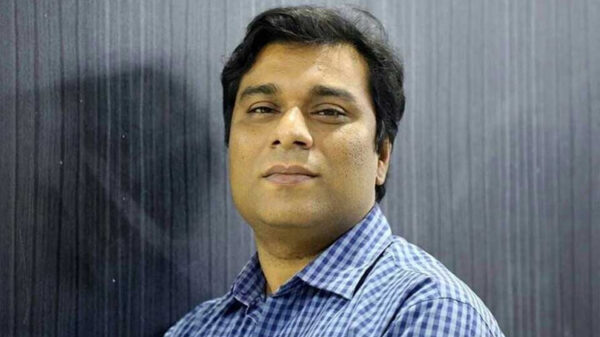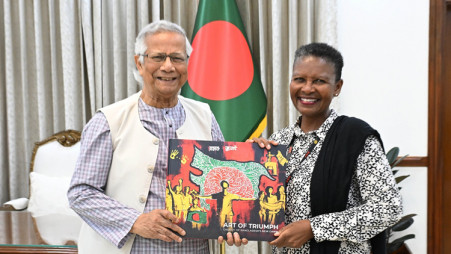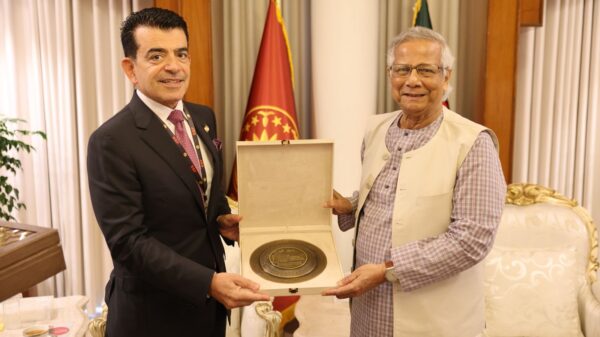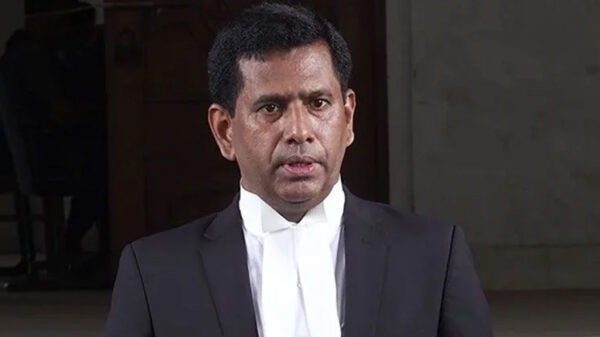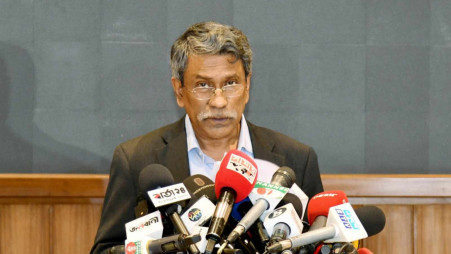Staff Reporter:
Bangladesh Jamaat-e-Islami yesterday proposed that no person should simultaneously hold the posts of prime minister and party chief for the sake of the decentralization of power.
“We have proposed that a person cannot be both the prime minister and the head of a political par-ty at the same time,” said Jamaat-e-Islami Nayeb-e-Ameer Syed Abdullah Muhammad Taher dur-ing the lunch break of his party’s 2nd day dialogue with the National Consensus Commission (NCC).
An 11-member Jamaat delegation, led by Taher, took part in the dialogue presided over by Consen-sus Commission Vice Chairman Prof Ali Riaz at the LD Hall of the Jatiya Sangsad Bhaban.
Taher said the proposal was aimed at decentralising power and ensuring the balance of power. “There will be a prime minister who will not be the party chief, or a party chief who will not be the Prime Minister,” he said.
Noting this practice is seen in many countries in the world, he referred to the system even in neighbouring country- India
In India when Sonia Gandhi was the Congress president, Manmohan Singh served as the prime minister. Even now, Narendra Modi is the prime minister, but he is not the party president, he said.
He said the current US President is also not the head of the Republican Party. “So, this balance of power is maintained across the world,” he added.
The Jamaat leader also proposed limiting the tenure of a prime minister to two terms in a lifetime. “A person cannot be prime minister more than twice. That means no person can hold the post of Prime Minister for more than 10 years in his or her entire life,” he said.
A taskforce proposed to check corruption in ACC’s activities”
Mentioning that the Anti-Corruption Commission (ACC) engages in corruption in many cases, Taher said his party proposed a taskforce to act a watchdog over the ACC’s activities and bring cor-rupt persons under punishment.
“This task force will investigate corruption, identify irregularities and ensure primary punishment against the accused—such as suspension or show-cause notices in the case of government employ-ees,” he said.
He said the National Consensus Commission agreed with the idea and assured that they would in-clude a recommendation on this issue.
To hold election commissioners accountable for irregularities:
Jamaat proposed legal amendments to bring the Election Commission under stricter accountability, including provisions for punishing retired election commissioners for past irregularities.
“For the last 15 years, the Election Commission has not or could not carry out its responsibility of holding fair elections. One of the main reasons for this is that the existing laws don’t have much punitive provisions for the mistakes and errors of the Election Commissioners in our country,” said Taher.
He said they proposed empowering the Supreme Judicial Council to investigate the irregularities and ensure punitive action against commissioners during their tenure and even after their retire-ment.
“We’ve proposed that laws be amended to bring them under accountability and that they be brought under punishment even after they retire from the Election Commission,” he added.
Regarding the proposed National Constitutional Council (NCC), Jamaat expressed its support in principle but suggested changes in formation process. The party asked not to include the President and the Chief Justice in the Council, Taher said.
Earlier on April 26, Jamaat-e-Islami participated in the dialogue with the Consensus Commission for the first day.
During the first day’s talks, Jamaat agreed to the proposals for the introduction of the proportional representation (PR) system, a bicameral parliament and the provision to prevent any individual from becoming Prime Minister more than twice.
They discussed only the Constitution-related reform recommendations on the first day.


